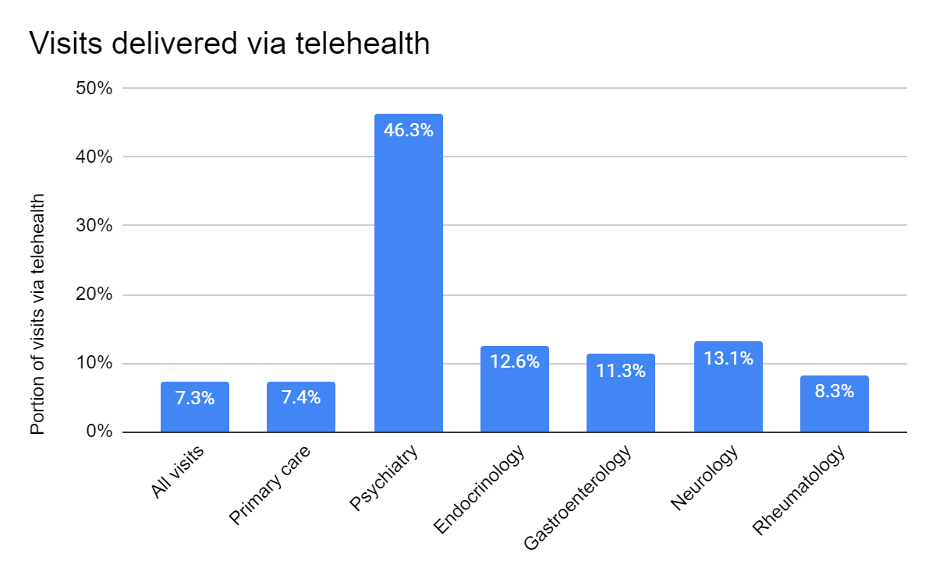Telehealth use remains uneven
September 16, 2024
Source: Yu, et al Health Affairs, September, 2024 LINK
The COVID-19 pandemic dramatically expanded the use of telehealth, although telehealth use remains highly uneven. Researchers in Health Affairs reported on telemedicine use in practices of physicians with Medicare beneficiaries, and this is applicable to employer-sponsored health insurance since most of those practices also take care of commercial patients. This study looked at only physician providers and did not evaluate care delivered by advanced practice clinicians (such as physician assistants or nurse practitioners) or by companies that employ physicians and other providers to deliver fully remote care.
The researchers found that telehealth was most common in psychiatry, and relatively common in endocrinology, rheumatology, gastroenterology, neurology and primary care. Visits with female physicians were 24% more likely to be via telehealth compared than those delivered by male physicians. Visits with a physician in a rural zip code were 42% less likely to be seen through telehealth. Patients on the West coast and in the Northeast were most likely to receive telehealth visits. Telehealth ranged from 1.4% in the state with lowest utilization to 17.2% of total physician visits in the state with highest utilization.
Primary care physicians with more telehealth visits had panels with higher risk scores. Patient risk scores did not differ significantly among medical or surgical specialists who saw many vs. few telehealth visits, and psychiatrists who performed more telehealth visits had panels with less complexity.
Implications for employers:
- Telehealth remains exceptionally important in mental health care and has been critical to meet the growth in mental health needs post-pandemic.
- Telehealth is more widespread used in urban areas and is not likely meeting the needs of rural patients.
- The likelihood that a patient receives telehealth services might in many instances have more to do with the characteristics of their physician than their medical needs.
- This study does not support designing health plans that steer patients toward telehealth services through lower cost sharing.
Thanks for reading! Hope you’ll subscribe to this newsletter, and please hit the "like" button. Please also recommend to friends and colleagues - it's free. You can find previous posts at this link.
Tuesday: New studies find no increased depression or suicidality with GLP-1 drugs

